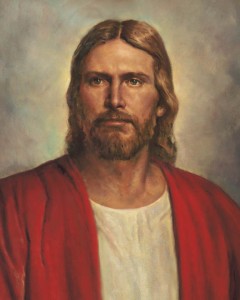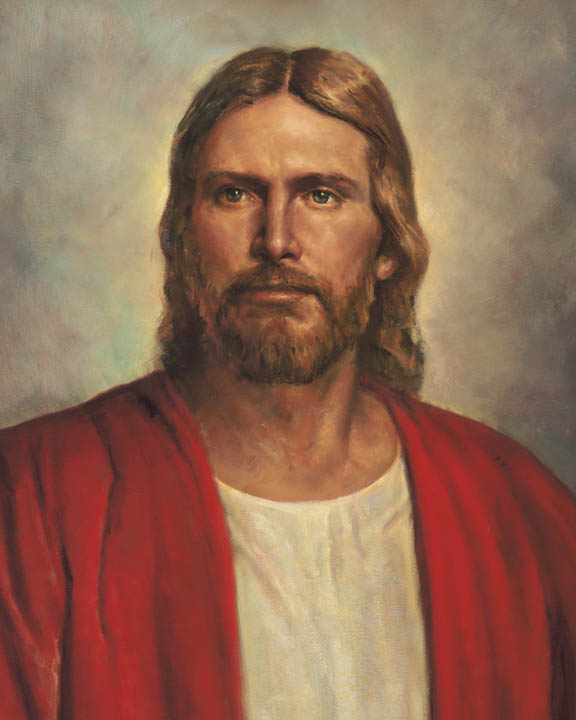Why are Mormons so focused on Joseph Smith, this first prophet of their church? What makes him so different from other great figures in history?
One reason—and possibly the main reason—is that Joseph Smith is a revealer of Christ. He taught about the life, mission, and atonement of Jesus Christ, and restored facts, knowledge, and truths that allow us to be more like Jesus. His teachings are essential to fully receive the blessings of Christ’s atonement for ourselves and our families.
 Having said that, I realize that many people have lauded Jesus Christ. The Pope, Billy Graham, and even the president of Iran have all said positive things about Jesus. Liking Jesus is par for the course. Again, the question is asked, what makes Joseph Smith so different?
Having said that, I realize that many people have lauded Jesus Christ. The Pope, Billy Graham, and even the president of Iran have all said positive things about Jesus. Liking Jesus is par for the course. Again, the question is asked, what makes Joseph Smith so different?
One way to show how Joseph Smith is different (and therefore more interesting) is to contrast him with other people who, at first blush, seem similar. For this blog I will use Socrates.
In his defense before the Athenian assembly, Socrates explained that he saw himself as a gadfly that nipped the horse that was the Athenian state. His job was to goad, cajole, and nag the Athenians into action. (Apology, 30e)
The Danish philosopher Søren Kierkegaard (who did his doctoral dissertation on Socrates’ uses of irony) explained that Socrates’ goal was merely ethical:
“He dug his teeth hard into the individual, constantly compelling and teasing him with the commonplace … causing irritation through the individual’s own feelings, not letting him go on leisurely and weakly admiring, but demanding of him his very self.” (Papers and Journals: A Selection, 211-212)
Gadflys are useful, but they are not enough. This is where Joseph Smith comes in. Of course he called people to repentance and to be their best selves. In fact, one of his revelations pointedly states:
“Say nothing but repentance unto this generation.” (D&C 6:9)
Both Socrates and Joseph Smith forced us to look at ourselves and become better than we are. But after repentance, then what? More is needed. And both men knew that.
First there is the need for community. Socrates outlined his ideals in The Republic. However he never actually organized any city-state along these lines. On the other hand, Joseph Smith organized a church. On top of this, he was a colonizer. He taught Brigham Young the ropes. Joseph Smith added to or organized from the bottom-up the cities of Kirtland, Zarahemla, Nashville, Yelrome, Haun’s Mill, settlements in Jackson County and the city of Nauvoo.
Thus Joseph Smith actually put his plans into motion, which is what you would expect from a prophet. A philosopher has the luxury of intellectual woolgathering, but prophets cannot be inert. They are always on the go.
That is one difference. On top of that, Joseph Smith revealed a system of ordinances (sacraments or ceremonies) for this community. Socrates had no such system. His was closer to the secular utopian systems devised by Thomas More, Karl Marx, Robert Owen, and Edward Bellamy. For Socrates, the cohesive principle would not be God, but wisdom and philosophy. His was bottom-up; Joseph Smith was top-down.
This religious core makes the difference. Now both Joseph Smith and Socrates had their religious experiences. Socrates got into the business of philosophizing because a friend of his went to the oracle of Delphi and asked if there was anyone wiser than Socrates. She said that there was no one wiser. Socrates did not believe it, so he went about trying to disprove the oracle, or at least understand what she meant (Apology, 21a).
Socrates also claimed to have a guiding voice or spirit that prompted him (Apology, 31d). But this seems to be the extent of his divine contact. He was a thinker with a gift for cross-examination, and he had a playful sense of humor—even biting humor. But he was not a prophet in the technical sense of the word.
(The book of Revelation teaches, “The testimony of Jesus is the spirit of prophecy.” (Revelation 19:10) And in the Old Testament, the prophets were also the overseers of the body of believers, as Moses was.)
Joseph Smith, on the other hand, seemed to have one foot in heaven and the other in earth. He had visions of God the Father and His Son Jesus Christ and over the years he had visitations from many angels. He also spoke of the “visions that roll[ed] like an overflowing surge before [his] mind.” (“Chapter 45: Joseph Smith’s Feelings about His Prophetic Mission,” Teachings of Presidents of the Church: Joseph Smith, [2007], 517–27). But there are also the tangible aspects of his work: colonies, missionaries, temples, scriptures. He managed both. So in short, he was a prophet’s prophet.
Brigham Young expressed his feelings this way:
“When I first heard [Joseph Smith] preach, he brought heaven and earth together; and all the priests of the day could not tell me anything correct about heaven, hell, God, angels, or devils; they were as blind as Egyptian darkness. When I saw Joseph Smith, he took heaven, figuratively speaking, and brought it down to earth; and he took the earth, brought it up, and opened up, in plainness and simplicity, the things of God; and that is the beauty of his mission.” (Discourses of Brigham Young, 458-459)
This heavenly and earthy aspect draws us back to Christ’s atonement. Unlike Zeus or Apollo, the gods of paganism seemed to be comfortable living on Mount Olympus. Christ, on the other hand, left heaven, came to earth, and even descended into hell to save the people who died without having a chance to hear about Him.
That is why Joseph Smith is different from Socrates. Behind the superficial similarities there looms the cross and the empty tomb. As good as Socrates was for civilization and humanity, it was not enough. Being a gadfly was not enough. We need a prophet, a witness of Christ. We need a witness of Christ because Christ makes all the difference in the world.
Howard W. Hunter, the fourteenth president of the Mormon Church explained that Christ’s ethical teachings were not the totality of, but an aspect to His mission.
He said:
“The doctrine of the Resurrection is the single most fundamental and crucial doctrine in the Christian religion. It cannot be overemphasized, nor can it be disregarded.”
“Without the Resurrection, the gospel of Jesus Christ becomes a litany of wise sayings and seemingly unexplainable miracles—but sayings and miracles with no ultimate triumph. No, the ultimate triumph is in the ultimate miracle: for the first time in the history of mankind, one who was dead raised himself into living immortality. He was the Son of God, the Son of our immortal Father in Heaven, and his triumph over physical and spiritual death is the good news every Christian tongue should speak.” (Howard W. Hunter, “An Apostle’s Witness of the Resurrection,” Ensign, May 1986, 15.)
Ethics alone are not enough. So Socrates’ ethical teachings are not enough, as useful as they are. We need this power, this ultimate triumph over the tomb. This is why Joseph Smith must be a revealer of Christ. Anything less would deny us this heavenly power.
There is one final difference. Socrates suggested the use of a “noble lie” to maintain order in his Republic (Republic, 414b-415d). Joseph Smith on the other hand was all about truth. He taught:
“God hath not revealed anything to Joseph, but what He will make known unto the Twelve, and even the least Saint may know all things as fast as he is able to bear them, for the day must come when no man need say to his neighbor, Know ye the Lord; for all shall know Him … from the least to the greatest [see Jeremiah 31:34].” (“Chapter 22: Gaining Knowledge of Eternal Truths,” Teachings of Presidents of the Church: Joseph Smith, [2007], 261–270.)
This is the ultimate in transparency: instead of surrounding his teachings with a bodyguard of lies, Joseph Smith invited everyone to experience what he experienced. That was his promise—all people were on equal footing with him.
I appreciate the work that both Socrates and Joseph Smith preformed. Civilization, society, and humanity are all the better for both of them. But we should not confuse or gloss over the differences. Socrates was merely a gadfly, but Jesus Christ was more than a carpenter, and Joseph Smith was more than a plowboy.


